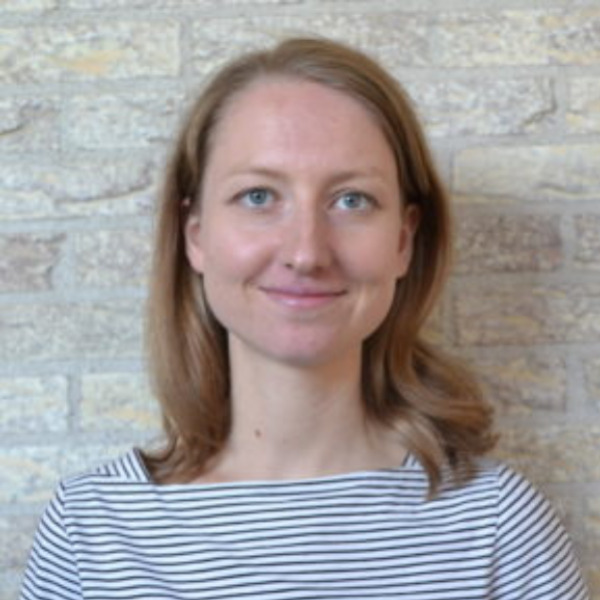| University | University of Groningen (UG) |
| Institute and/or group | Groningen Biomolecular Sciences & Biotechnology Institute (GBB) |
| Advisors | Prof. dr. Bert Poolman (UG), Prof. dr. Dirk Slotboom (UG) |
| oLife Research Areas | II. Defining properties and synthesis of Life, from the molecular to the biosphere level III. Modelling, predicting and steering of Life |
| Start date
End date Next career step |
December 1, 2019 March 31, 2023 Extension in Groningen till July 31, 2023, from 1 August 2023 DWI – Leibniz Institute for Interactive Materials in Aachen, Germany |
Profile of the fellow
Laura was trained as a chemist at RWTH Aachen University (D) with a special focus on polymer chemistry, colloids, self-assembly, material systems and catalysis. For her PhD, she went to the DWI – Leibniz Institute for Interactive Materials in Aachen and delved into the emerging fields of chemical dissipative non-equilibrium systems and DNA nanotechnology. Her focus was on developing new concepts for autonomous temporal programming of dynamic DNA-based materials, that allow creating life-like, adaptive and self-regulating soft matter systems. She moved with her PhD advisor Andreas Walther and his research group to the University of Freiburg (D) where she graduated.
Her research has always been inspired by living systems that show complex behavior and coordinated functions (e.g. self-renewal, self-replication, growth, locomotion, memory, adaptation). However, she got captivated by the entire field of fueled, dissipative non-equilibrium systems and the fundamental principles underlying life. For this reason, she is particularly interested in studying within the oLife Fellowship Programme simplified energy conservation mechanisms and metabolic reaction networks.
Engineering Artificial Metabolic Pathways and Sustained Energy Regeneration
Life happens out of equilibrium. This is the most distinctive feature of life. Yet we do not know much about how to drive and keep chemical systems out of thermodynamic equilibrium over prolonged timescales and in an autonomous fashion. We know that living organisms can only be sustained through a constant flow of energy and matter. The metabolism, an intricate network of coupled chemical reactions, guides those fluxes of energy and matter, and will be the key to understand dissipative self-assembly in living systems. Thus, Laura’s research within the oLife programme aims at reconstituting minimal self-sustained artificial metabolism and sustained schemes of molecular energy regeneration in reduced systems, from dissipative materials up to synthetic cells.
Adenosine triphosphate (ATP) is the prime energy currency of the cell, and will be the starting point of all coupled energy-regenerating systems. The energy needed to drive those systems will be harvested from chemical fuels and light via the build-up of chemical concentration gradients.
Compartmentalization of the reaction networks into organelles and membrane transport systems are integral to efficient energy transduction. For the latter she makes use of energy-transducing membrane proteins. Such membrane enzymes are the gates of the cell to external nutrients and allow molecular exchange with the environment. They serve as valves to sustain the concentration gradients, whose energy can then be coupled to drive otherwise energetically unfavorable reactions.
Her final aim is to understand and to drive energy-autonomous, long-lasting dissipative steady-state behavior, which so far only exists in living systems.

Dr. Laura Heinen
